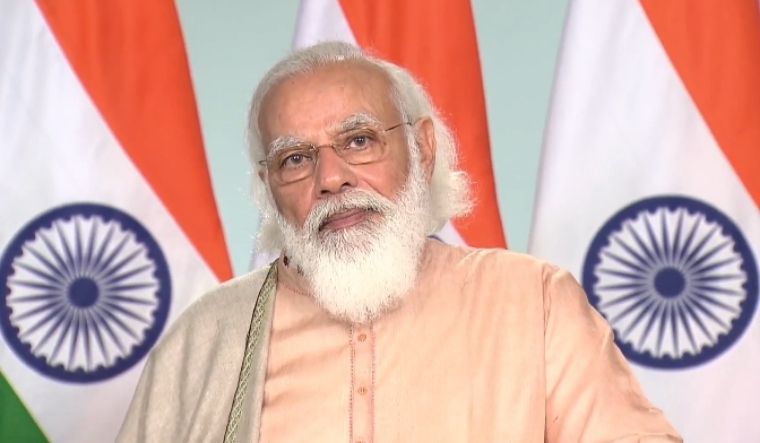Amidst the impasse between protesting farmers and the government, Prime Minister Narendra Modi came out with his staunch defence of the three farm reform acts at the centre of the storm, declaring they were a crucial link to the nation's development vision. Farmers themselves will end up getting the most advantage out of it, he argued.
“I only have noble intentions in my mind,” he quipped, quoting a Sanskrit verse. At an earlier point in his speech, he said that “all government decisions are taken with mind to contribute to society and the whole nation.”
The prime minister called the agriculture reforms an important link in India's growth story. “A sector can only grow when its beneficial effect can be felt on other industries, too,” he said, adding, “But if you create barriers, growth will not be that fast. In different sectors, these barriers have cost us a lot in the past. But now reforms are happening, and different sectors have to work together, complementing each other... and the agri reforms are a crucial link.”
Modi was addressing doyens of Indian industry at the annual event of the industry chamber FICCI. After waxing eloquent on his favourite topics like Atmanirbhar Bharat, India's post-Covid recovery, record international investment in the country, he veered into the contentious issue of the three farm bills and the pushback against it by hundreds of thousands of farmers across the country.
also read
- Delhi Chalo: Farmers conduct tractor rally to Shambhu border; Punjab governor stresses for peaceful talks
- Delhi Chalo: Punjab police chief, Union home ministry official persuade farmer leader Dallewal to break indefinite fast
- Delhi Chalo: Haryana police foil farmers’ third attempt, stop march at Shambhu border again
- Delhi Chalo: Ambala administration suspends internet as farmers resume attempts to reach national capital
“Farmers themselves will be the biggest beneficiary of these changes,” he stated. “When we remove these existing barriers, farmers will get more income and the advantages of technology, like processing, cold chain, storing and logistics. And there will be more investment in this agriculture sector. It will be the farmers themselves who will get the most benefit out of it,” the prime minister argued, adding, “We should support each other.”
Modi gave the example of sugar cane farmers and how the vagaries in weather, production and prices used to be an issue. “Earlier, they were only producing sugar, and were worried over the crops, they were not getting their money on time,” he said, pointing to how the government has re-directed the farmers to work with mills to manufacture ethanol. “Now we are planning to cover 10 per cent of our fuel requirements with ethanol. Besides the savings on foreign exchange once we reduce our dependence on petroleum exports, the farmers will also get a better deal. Think of the change, and how it will help the farmers!”
“But that's not enough,” said Modi. “Unless we invest big, farmers will not get better production, value and output,” he argued, even while adding, “We are dedicated to listening to the farmer's will.”







